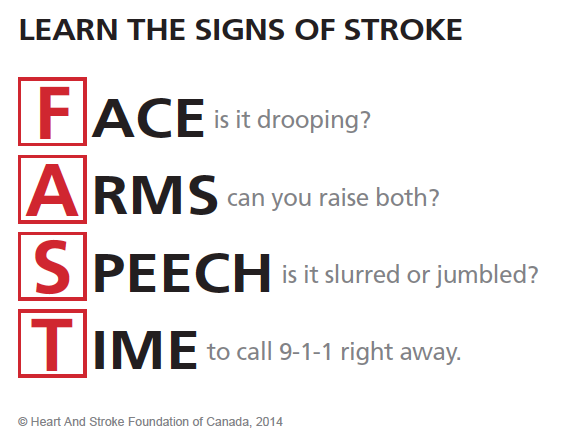
Seven things you may not know about vascular dementia
Vascular dementia is one of the more common forms of dementia, but how much do you know about it? Read on to learn more about vascular dementia.
1. Stroke is a common cause of vascular dementia
Vascular dementia can happen because of damage to the brain from lack of blood flow or from bleeding in the brain. One of the possible causes of this brain damage is stroke.
A stroke occurs when blood flow in an artery stops, either because the artery is blocked or has burst. The damage caused by a stroke may lead to vascular dementia.
2. There are different types of vascular dementia
Different conditions affecting the brain’s blood vessels can lead to stroke and other kinds of vascular brain damage. This brain damage may also result in vascular dementia. Two types of vascular dementia are subcortical dementia and cerebral amyloid angiopathy.
When small vessels in the brain become stiff and twisted, reducing blood flow to the brain, this causes subcortical dementia.
When a protein called amyloid builds up in the brain’s blood vessels, strokes or bleeding may happen which may result in symptoms of dementia. This is known as cerebral amyloid angiopathy.
3. Symptoms of vascular dementia tend to appear slowly, and in steps
Someone with vascular dementia may notice changes in their ability to make decisions, plan, or organize as their first symptoms. Other changes may include difficulties with movement, such as slow gait and poor balance.
Symptoms tend to appear slowly, and specific impairments may occur in steps, where the person’s abilities can deteriorate, stabilize for a time and then decline again.
4. There is no one specific test that can diagnose vascular dementia
If you suspect that you have vascular dementia, your doctor will likely perform a number of tests, both physical (like measuring your blood pressure and cholesterol levels) and cognitive (measuring your judgement and planning abilities).
Along with a detailed medical history, these tests will provide your doctor with the evidence they need to make a diagnosis.
5. Having a stroke more than doubles the risk of developing dementia
That’s why it’s important to learn the signs of stroke. The Heart and Stroke Foundation’s FAST campaign can help you identify when a stroke is happening.

6. By managing risk factors for stroke, you can manage risk factors for vascular dementia
In general, controlling the risk factors for stroke can also help reduce the risk of vascular dementia.
You can lower your risk of vascular dementia by keeping these risk factors in check:
- High blood pressure
- Smoking
- Stress
- Unhealthy weight
- Unhealthy diet
- High cholesterol
- Heavy alcohol use
- Drug abuse
Did you know that high blood pressure (or hypertension) is the single most important risk factor for stroke and vascular dementia? It’s a risk factor you can manage, too, through physical activity, healthy eating and taking the right medication. Medications may also help control other risk factors like diabetes, cholesterol and heart disease.
7. Living a healthy lifestyle may reduce your risk of vascular dementia
Since there are currently no medications that can reverse brain damage, it is important to make healthy lifestyle choices (such as being physically active or eating well) for life-long brain health. Even if you have vascular dementia, small healthy changes can help maintain your quality of life. By living a healthy lifestyle, vascular dementia may be prevented, delayed or slowed down.
For more information, check out our vascular dementia page, or download our full brochure.
Quiz
Think you know about vascular dementia now? Take our quiz and test your knowledge! Can you get all seven questions correct?
1. True or false? If a person has a stroke, they will definitely get vascular dementia.
2. Two different types of vascular dementia are:
3. Which of the following is a symptom of vascular dementia?
4. True or false? There is no single test that can diagnose vascular dementia.
5. According to the Heart & Stroke’s FAST campaign, how can you identify when a stroke is happening?
6. Which of the following are risk factors for vascular dementia?
7. True or false? Having a healthy lifestyle can reduce your risk of vascular dementia.
Share your Results: